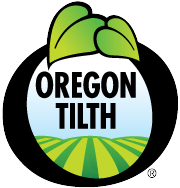OVERVIEW
From bulk bins in grocery stores to processors sourcing ingredients for soup, there is an increasing gap in the demand for organic goods. Transitioning crops to certified organic is a shared effort to meet marketplace needs and increase sustainable production. Working with all players in the supply chain, we hope to develop new models to create financial, technical and market support for transitional organic producers.
The Challenge
Despite the tremendous potential for organic products, expansion and transition to organic production carries substantial risks. Farmers are challenged to guess on what crops to grow without reliable information on what is needed most in the marketplace.
In addition to lack of data, current small to mid-sized operators are often unfamiliar with wholesale structures that have set requirements for processing and food safety necessary to access new markets. And while certified organic products offer economic opportunities, farmers are often unable to collect price premiums until after a three-year mandatory transition period despite using certification compliant practices. It’s clear. Investment in organic production, education and infrastructure without support or certainty of product premiums is a huge financial gamble.
Processors hoping to transition to organic production also face challenges. Certification applies to not only crops but to handling and manufacturing processes as well. From packaging to freezing, organic products must be handled to prevent commingling with and contamination from conventionally processed items. And organic handling and processing requirements affect infrastructure needs all along the way such separate storage facilities to production lines.
Transition presents challenges for access to capital, technical training and lack of a clear marketplace analysis. Informed by good data, we need to link processors, growers and investors together to identify opportunities to work together.
The Opportunity
We believe in the power of meaningful connections to produce change. For us, transition is not just an opportunity to give growers access to economic growth or to convert landscapes to certified sustainable production. It is a gateway to define new models for changing how we invest in organic.
Oregon Tilth launched its Growing the Organic Sector initiative to identify supportive strategies for transitional production. Through partnerships with Ecotrust, Craft3, Oregon Physicians for Social Responsibility and several food processors, we are conducting analysis of organic and transitional crops to understand wholesale demands for buyers. In addition, we are reaching out to growers about market opportunities based on data results. We hope to identify purchasing strategies and investment opportunities to increase overall organic food supplies through transition. And, we’re committed to developing new public-private financial models that invest in transition from idea to incubator to new business practice.
Our continued partnership with the USDA Natural Resources Conservation Service (NRCS) is exploring opportunities to create a Conservation Activity Plan (CAP) that provides financial and technical assistance for conservation planning that supports farmers in transition to certified organic production.
Oregon Tilth also created the Transition to Organic Network (TON), a nation-wide online community of farmers, processors, handlers, buyers, agricultural service providers, and other stakeholders that share a common interest in transition and organic agriculture. TON members connect with each other via a group mailing list to exchange questions and resources related to transitional and organic agriculture, stay informed about educational opportunities and programs for transitioning producers and buyers, and to network and develop relationships with others on-the-ground facing similar challenges. Sign up for the Transition to Organic Network.
